10 conclusions from Paris-Roubaix
Terpstra, an individualist in a team role
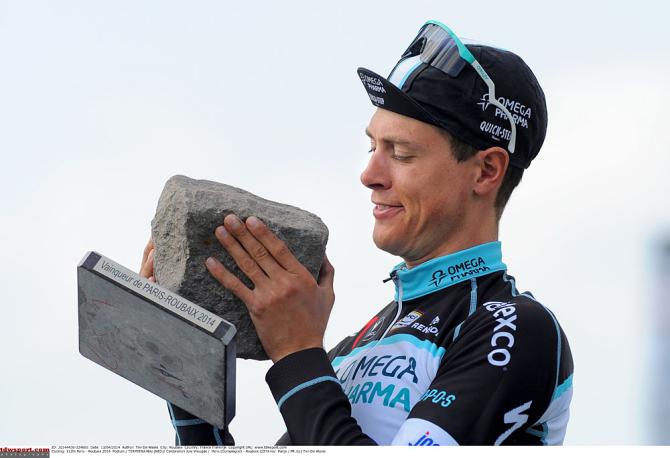
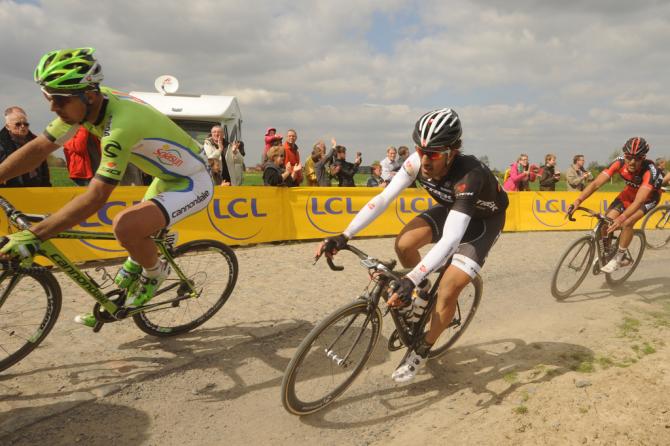
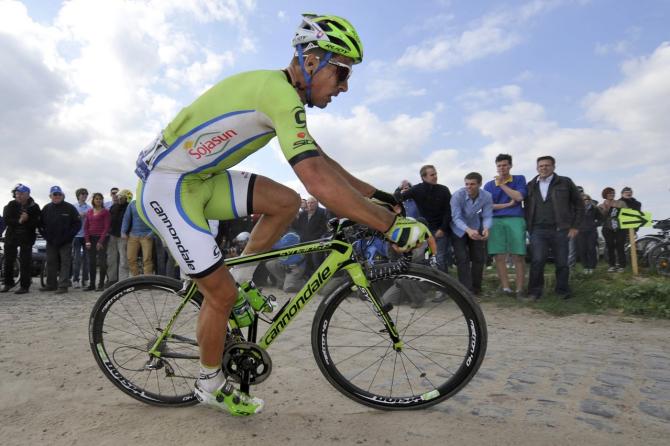
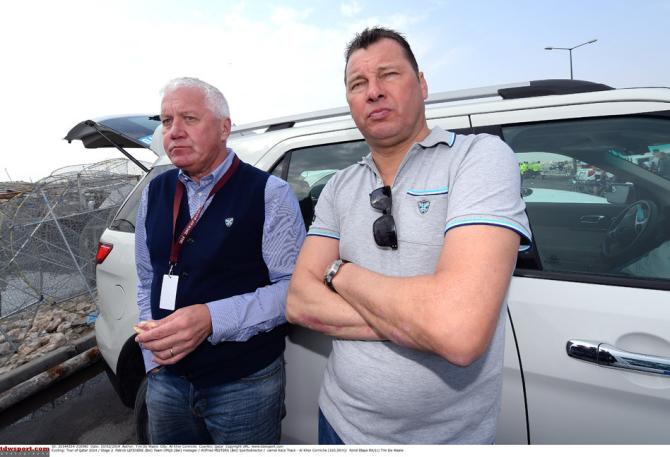
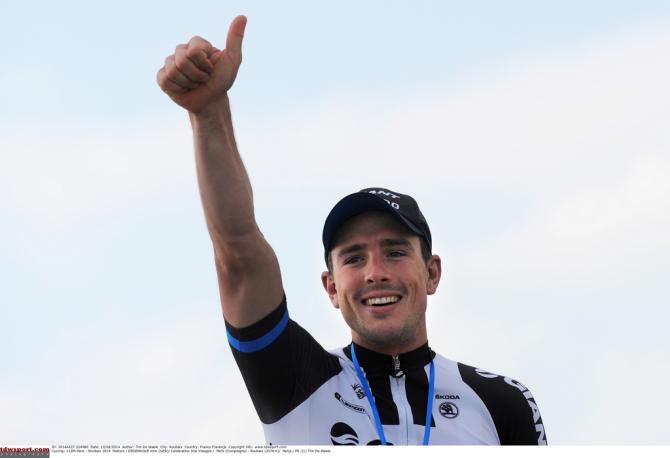
When Sylvain Chavanel left Omega Pharma-QuickStep for IAM Cycling during the off-season, it brought an end to a tacit internal rivalry with Niki Terpstra. Each man was deployed in a very similar role as a foil to Tom Boonen, but Terpstra, it seemed, was endowed with a streak of selfishness that the Frenchman simply didn't possess, the selfishness necessary to land a big Classic.
Yet even after winning Paris-Roubaix, Terpstra insists that he has no designs on being a team leader and with good reason: unlike Chavanel, he has had the cunning necessary to carve out winning opportunities for himself even while working for a team leader. It was hardly by chance, for instance, that it was Terpstra, not Chavanel, who managed to get up the road to win Dwars door Vlaanderen in 2012.
When Boonen launched his own attack with 60 kilometres remaining on Sunday, he had apparently asked Terpstra to join him, but the Dutchman downplayed the incident during his winner's press conference. "In the space of a second, Tom was already gone. He's a lot more explosive than me," said Terpstra, who instead saved his powder for the finale. "A lot of riders can be in the finale of a classic but not many can finish it off," Patrick Lefevere said admiringly of Terpstra's nous on Sunday.
Terpstra's single-mindedness has not always been to everyone's taste, and even the affable Boonen joked that he was not a fan before he joined QuickStep. "When he was at Milram, he was always on my wheel. Even when I stopped for a piss, he was there," Boonen told L'Équipe. "But now that he's with us, I've got to know and like him."
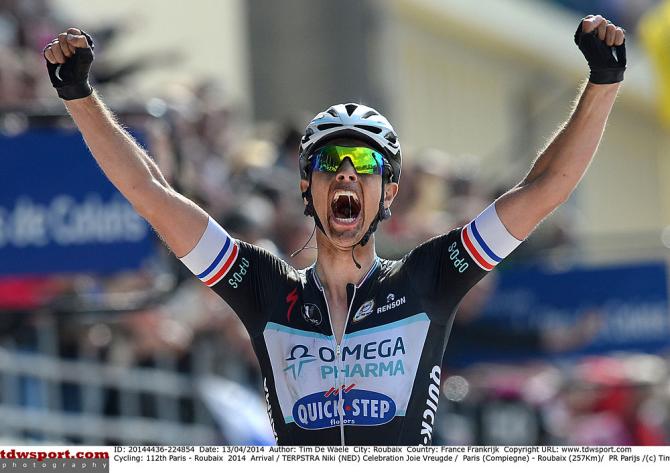
Cancellara's record
12 podium places in the last 12 monuments he's completed is a phenomenal record, and yet another reason to anoint Fabian Cancellara as the Classics rider of not just his generation but of the last 25 years. Never has a rider been so consistent, so dependable and so successful in the cauldron of one-day racing where so many variables can shatter a rider's hopes.
On Sunday Cancellara rode a smart race, perhaps finishing as high as could be expected given the firepower Omega Pharma had at their disposal and the bad luck his own team were exposed to. When escaping in a group that contained Peter Sagan and John Degekolb it looked as though the third Flanders-Roubaix double was within reach, but the harmony wasn't quite right, the headwind was too great and Cancellara wisely saved his energy for the sprint. It wasn't his job to chase Terpstra either, with Team Sky and Giant-Shimano both having two men in the leading group of 11, but in the most open Paris-Roubaix in years Cancellara rubber stamped his position as the man of the spring with second in Milan-San Remo, first in the Tour of Flanders and third in Paris-Roubaix. That's a better haul of results than Boonen has had in two whole years.
The latest race content, interviews, features, reviews and expert buying guides, direct to your inbox!

Terpstra saves Lefevere's team
Patrick Lefevere had been here before with a result in Paris-Roubaix needed in order to rescue his team from a second consecutive failure in the cobbled Monuments. On one level it may seem harsh to judge a team to such high standards but this is a squad, whether through Mapei, Domo, QuickStep or Omega Pharma that live to perform in these races.
"We showed the way all day. It was about time and today it was time for us to show our stuff."
That was Lefevere back in 2001 when his team were in a similar position after a poor result in Flanders. And once again it was a Dutch rider who dug him out of a hole with Terpstra cast in the role of Servais Knaven. Coincidentally, this was Holland's first Monument win since that muddy day in 2001, but it was timely reminder of Lefevere's consistency in building winning teams. It's now his eight Paris-Roubaix titles since the turn of the century.
Terpstra himself was a worthy winner, too. Some called it luck, others the result of the favourites cancelling each other out, but there were nearly a dozen riders who could have won the race and it was the Dutchman who seized the chance with both hands.
"I think the two victories are similar in style," Lefevere said at the finish when comparing Terpstra's win to Knaven, "but I think Niki is really a different kind of rider to Servais, who was a real gregario, even if he also won a stage at the Tour. Niki really has something more, more quality and more class."

Vanmarcke ready for the next step
If Fabian Cancellara "could only lose" Paris-Roubaix, then the same was true of Sep Vanmarcke. The Belgian's fine showing at the Tour of Flanders marked him out as perhaps the only man who could hope to beat Cancellara à la pedale on the cobbles. Consequently, Cancellara was always going to be loath to let Vanmarcke gain so much as an inch all day.
And so it proved. As was the case last Sunday in Flanders, Vanmarcke and Cancellara's accelerations seemed to come in tandem, each man testing the other over the pavé, but neither succeeding in breaking clear of the other. Like 12 months ago, they came into the velodrome together, albeit this time as part of a chase group of ten rather than as the two leaders. Even the result of the sprint was similar, too, as Cancellara pipped Vanmarcke to third place on the podium behind Terpstra and John Degenkolb.
From Omloop Het Nieuwsblad and Kuurne-Brussel-Kuurne all the way through to the Tour of Flanders and Paris-Roubaix, Vanmarcke has scarcely been able to hide his quality during a spring campaign that has confirmed his elevation to the upper echelon of Classics contenders. Gratifying though that may be, Vanmarcke will be aware that his final haul of results (3rd in Flanders and 4th in Roubaix) is not a fair indication of his strength.
He will be aware too, that the bar will be set significantly higher this time next year. The external expectation will be that Vanmarcke can turn high placings and shows of strength into Classics victories, and all the while the kind of marking he endured on Sunday will only intensify. Boonen and Cancellara, of course, have faced similar marking over the past decade and found ways to win - that's the next and most difficult step for Vanmarcke.
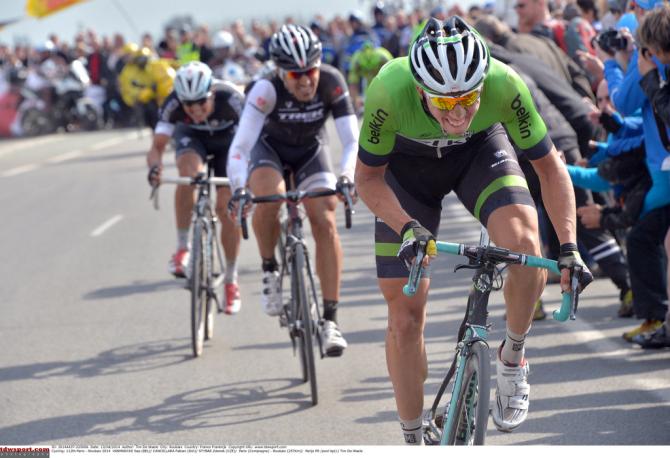
QuickStep earn their luck
Boonen called his team 'lucky' after they picked up the win on Sunday and it was an understandable assessment given how close they came to throwing everything away. Their tactics, although bold, had a hint of insecurity about them, with Boonen going on the attack far earlier than even a top form version himself would have liked.
However, his early move caught some of his rivals off guard and essentially made the race, giving Terpstra and Stybar an easy ride for close to 50 kilometres. It could have been so different in the finale though and had any one of the break matched Terpstra's attack the team could have been faced a second devastating loss in as many weeks. Yet with three riders having survived the lasts sector of cobbles, even with Boonen on his knees, the team deserved luck.
BMC must look at the bigger picture
There's always one major team that sees their race go up in smoke in prematurely in Paris-Roubaix and on Sunday it was BMC's turn. In the immediate aftermath as Phinney, Van Avermaet and Hushovd wiped the dust from their eyes, and Allan Peiper assessed the race, there was little to really savour. Their tails had been well and truly up after Flanders but Roubaix took some of the gloss off what had so far been a promising and rewarding spring campaign. Their game plan looked sound when Thor Hushovd shadowed Tom Boonen after the Belgian's surge with around 65 kilometres remaining, but from that point on the team were constantly on the back foot.
Van Avermaet was caught in a crash, and after his brave ride in Flanders Phinney found himself unable to chase back to the leaders after a costly puncture. The bigger picture suggests that this team are moving in the right direction and like Sky, BMC should be even closer to Omega Pharma in 2015.
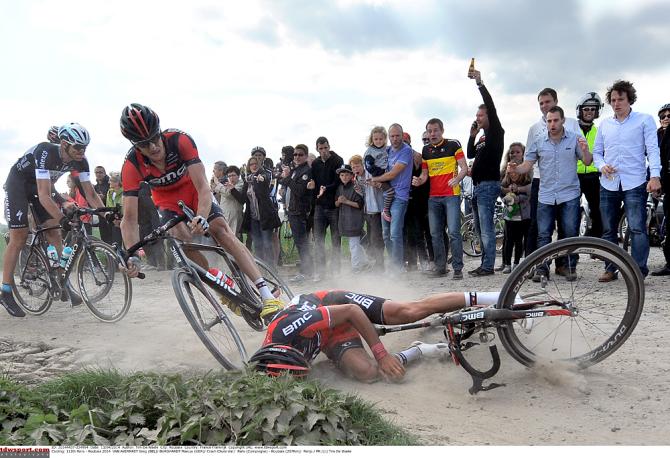
Wiggins finds a new niche
Often - and rightly so - Team Sky are criticised for the corporate nature and lack of an approachable team personality. They have an image alright, but it's not one that's easy to warm to unless you're a British cycling fan or journalist. It's an odd situation given that they genuinely house some of the most individualistic, interesting and quotable riders in the bunch but on Sunday not even the black and blue tape could conceal a defining performance for the team. Heading into the race Bradley Wiggins, free from the shackles of GC scrutiny talked with all the enthusiasm of a neo-pro who had been given his first contract, providing fans with a reminder of why he remains passionate about the sport.
It wasn't just all bluster either. The former Tour de France winner was in the thick of the action all-day, and along with Thomas could have even won the race had certain circumstances worked in their favour. The pair may have failed to chase down Terpstra's attack but with two riders in the top 10, Sky's one-day race pedigree is improving with every race. They certainly would have won a few more neutral fans with their Roubaix ride too.
As for Wiggins, he's making all the right noises about the Tour selection. Calling it 'Froome's team' will go along way to publicly heal any remaining rift, while at the same time adding pressure for his inclusion. Given Sky's problems in the GC department they can hardly afford to leave Wiggins on the sofa this July.
And as for Thomas, he's shown enough during the spring to suggest that he and Ian Stannard should be the out-and-out leaders next year.
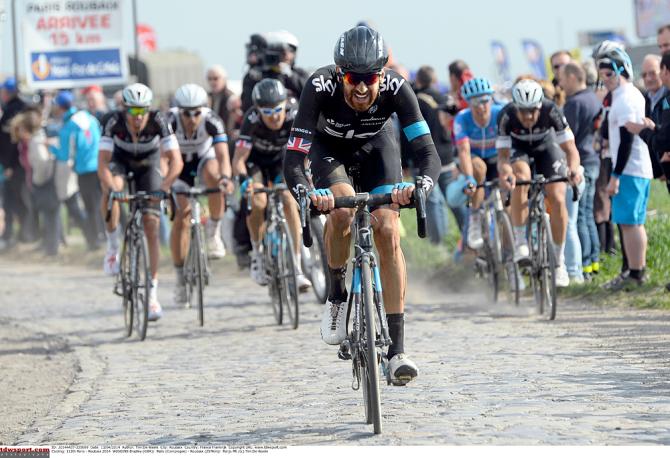
Sagan's demonstration
The Slovak perfectly summed up his Paris-Roubaix ride as a 'demonstration' in his post race interviews. After a rather lacklustre spring campaign to date in which he lost races that many thought he should have won, Sagan bristling with fight and with a point to prove, offered a timely reminder of his raw talent.
After initial setbacks, and briefly losing contact with the leaders, he fought back. One might argue that this was nothing special: he's paid big bucks to lead a WorldTour team and effort is the bare requirement at this level, but his aggressive attacks in the finale demonstrated a side to Sagan that's been lacking in recent weeks. He'll win Roubaix at some point in his career, of that there's little doubt, and one feels it's a question of how many Monuments he'll tick off once he nets the first.
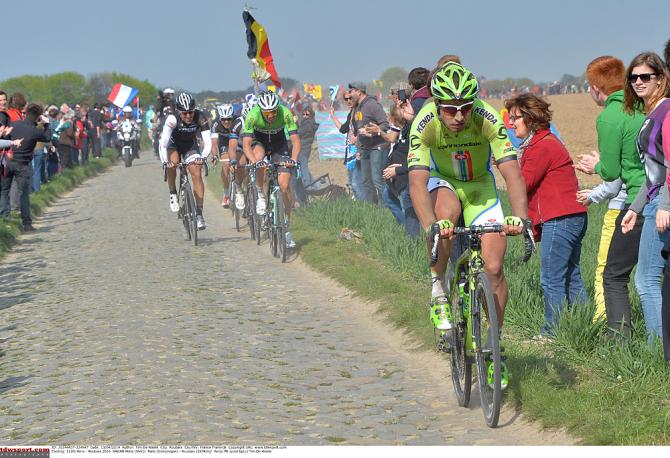
Degenkolb's spring of confirmation
A breakthrough win in Gent-Wevelgem and a fine second place in Paris-Roubaix backed up the general consensus that the 25-year-old is far more than 'just a sprinter'. Tactically astute, never intimidated by some of his more illustrious rivals, Degenkolb was willing to take the race by the scruff of the neck and dictate the action on Sunday.
In one sense his sprinter skills mean that Degenkolb will always find it harder to win Paris-Roubaix as he's never likely to receive an arm-chair ride to the finish, but he came mightily close this time around. Had Bert De Backer saved anything in the tank we could have been looking at a German winner for just the second time in the race's long history.
Bert De Backer deserves praise, too. He was simply phenomenal all-day long and deserved a top ten place for his efforts. He finished 11th, having dropped off Degenkolb ahead of the sprint. So while riders and teams after often criticised for riding for points in the modern framework of the sport - it's understandable at times - De Backer personified the perfect teammate.
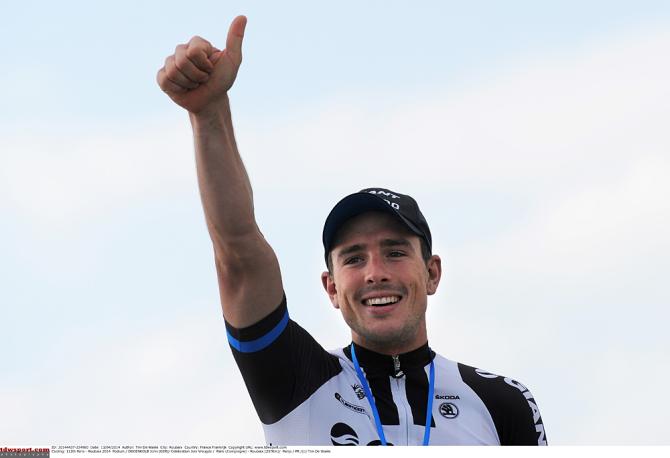
Arnaud Démare
Just a place further back in 12th was the young Frenchman Arnaud Démare, who was competing in just his six Monument. Two punctures, and a crash threatened to derail his race but the 22-year-old is well on the way to becoming a Classics contender.
Photos: Tim De Waele

Barry Ryan was Head of Features at Cyclingnews. He has covered professional cycling since 2010, reporting from the Tour de France, Giro d’Italia and events from Argentina to Japan. His writing has appeared in The Independent, Procycling and Cycling Plus. He is the author of The Ascent: Sean Kelly, Stephen Roche and the Rise of Irish Cycling’s Golden Generation, published by Gill Books.